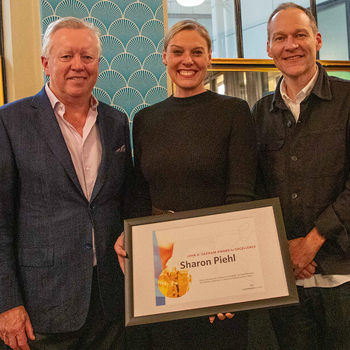Another Shuffle At the Department of Communications
President Jacob Zuma’s decision to replace communications minister, Yunus Carrim, with the controversial Siyabonga Cwele, has certainly raised a few eyebrows.
Cwele is the former minister of state security and an advocate of the contentious Protection of State Information Bill (aka Secrecy Bill). His former wife, Sheryl Cwele, was convicted three years ago of dealing in drugs.
Conversely, Carrim appeared more focused and effective by making important progress in a number of key areas, including developing a broadband policy and resolving problems at a number of government agencies within his portfolio.
Some claim the new appointment of Cwele will “send shockwaves through South Africa’s ICT industry”, while others have criticised Zuma for his decision to split the Department of Communications into two separate entities: one focused on broadcasting and media, the other on posts and telecommunications (to be headed by Cwele). In the 1990s, under Pallo Jordan and Jay Naidoo, the department was known as posts, telecommunications and broadcasting.
The communications department will remain (with relatively unknown Faith Muthambi as communications minister), and will take on government’s external communications agency, GCIS, and Brand South Africa. It will continue to look after the SABC and Icasa.
Some see this reshuffle as a retrograde step that will not only set ICT policy making in South Africa back by 25 years, but the country too. One has to question where ICT policy reviews will move to. It’s all rather a little confusing.
Lack of real change from government has resulted in some communities taking matters into their own hands. The residents’ association of Parkhurst, for example, has issued a request for proposals from local telecoms service providers to connect all houses and businesses in the area to fibre-based broadband. According to one of the residents leading the initiative, the community has already received proposals that suggest they could be offered 100Mb line speeds for R700 per month, with data on top of that priced at just R2 per GB.
One also has to wonder what Cwele will bring to the new portfolio. His focus may be on cyber security and internet surveillance, which may mean a desire for increased control of the internet and a closed-down social media space.
Another concern is the frequency with which the communications minister has changed in recent years, which has resulted in policy indecision and further delays. Since Ivy Matsepe-Casaburri passed away in 2009, the portfolio has been filled by Manto Tshabalala-Msimang, Siphiwe Nyanda, Roy Padayachie, Dina Pule and outgoing minister, Yunus Carrim. That’s five ministers in as many years; so much for continuity.
Not only will the decision to split the communications department result in further delays in important projects, but it will stall the process of South Africa trying to claw its way back up the global ICT rankings.
The latest World Economic Forum (WEF) global IT report has confirmed a steady decline in SA’s IT infrastructure and the skyrocketing costs of internet connectivity. The high cost, lack of access and slow internet connectivity, is unquestionably hampering SA’s economic growth and job creation.
Although SA’s overall ranking has stabilised at 70th out of 148 countries, there has been a drastic decline in speed (73rd out of 144, a seven spot drop since 2013) and accessibility (87th out of 144, a two spot drop since 2013). SA’s prepaid mobile cellular tariff (128th out of 144) and fixed broadband internet tariff (91st out of 144) rankings have also plummeted.
Written by Graeme Scala
Find Out More
-
Digital Insights Bulletin - October 2024
October 31, 2024
-
Sharon Piehl Wins 32nd Annual John D. Graham Award for Excellence
October 25, 2024
-
Digital Insights Bulletin - September 2024
September 30, 2024


